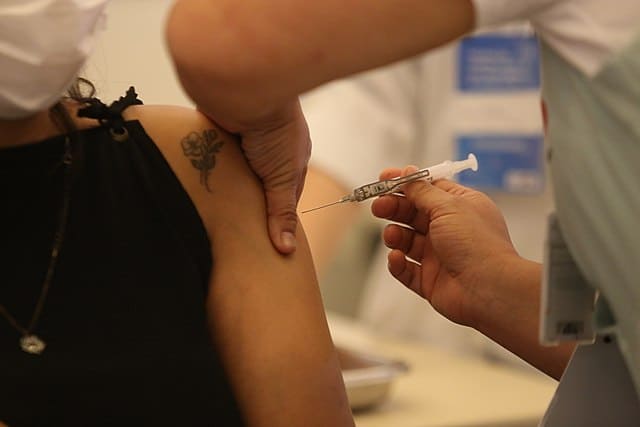Mumbai reports 20,181 new COVID-19 cases, positivity rate at 31.7%
As of January 7th, Mumbai crossed the 20,000 cases of COVID-19 mark, which was the threshold for lockdown measures, as announced by Mayor Kishori Pednekar. Health Minister Rajesh Tope said a decision on lockdown in Mumbai will be taken by the Chief Minister.
The total number of fresh cases, 20,181, is a 33 per cent spike over the previous day’s figures. Although 85% of the new cases show no symptoms, 1,170 patients have been hospitalised and 106 are on oxygen support. Four deaths were also recorded.
BMC has issued home isolation norms for asymptomatic and mild cases, but new guidelines by the Union Ministry of Health have reduced the home isolation period to 7 days. The BMC has implemented the revised guidelines for home isolation as of January 6th.
Source: NDTV, Indian Express
New drive to check universal pass in BEST buses, as COVID-19 cases surge

On January 6th, BEST conducted a check for a universal pass or double vaccination certificate among travellers in buses across Mumbai. This was done to control the spread of COVID-19, in view of the sudden increase in cases in Mumbai.
BEST Spokesperson Manoj Varde told The Times of India that the commuters did not expect the random check by inspectors and conductors. However, the figures for those caught without certificates is unavailable.
BEST also deployed 200 ticket checkers on major bus stops, to curb ticketless travelers.
Source: The Time Of India, India Today
Mumbai beaches, parks and public places to remain closed from 5pm to 5am till January 5th
DCP (operations) S Chaitanya of Mumbai Police issued an order on January 31st under section 144 of the code of criminal procedure, prohibiting people from visiting beaches, parks, gardens, promenades or any such public places between 5 pm and 5 am daily till January 15 to curb transmission of the COVID-19 virus and the highly contractible Omicron variant.
The order will remain in force till January 15, unless withdrawn earlier.
Source: The Print
Read more: How can Mumbai get more public spaces?
Due to delay in commencement of undergraduate medical admissions, registrations dip by 9000, say experts
Pre-admission registrations for undergraduate medical courses like MBBS and BDS dropped by 9000 applications this year. Figures shared by the admission authority or the state common entrance test (CET) cell, show that only 55,674 candidates completed the process of uploading the necessary documents and paying fees by January 5th (the deadline) as opposed to last year’s 64,645 candidates who completed the entire registration process.
Source: Hindustan Times
78 percent of housing societies want to set up charging stations for electric vehicles
In a survey conducted by My Gate – a security and community management app – 78 percent of housing societies in Mumbai want to install charging stations for electric vehicles in the next three years.
With the boom in the EV industry, there is a growing need for EV charging infrastructure. The nationwide survey showed that 57% of people were keen to invest in EV in the next 12 months and 20% in 1-3 years.
Source: The Times of India
(Compiled by Radha Puranik)